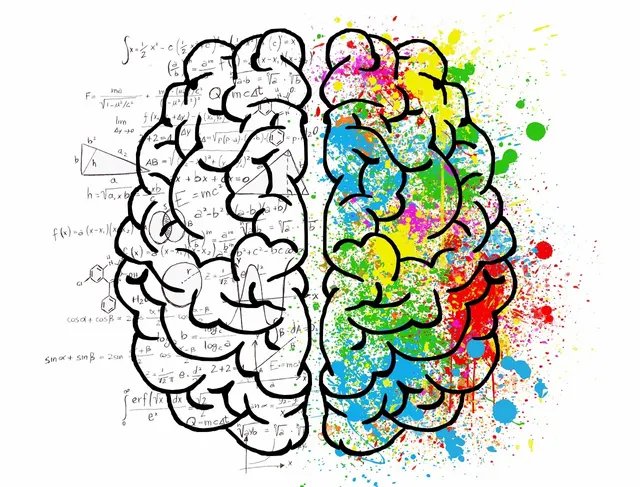Many believe that The highest form of intelligence is emotion. The question however is, what exactly is this emotion? How does it affect our intelligence? I aim to answer these two questions in this post.
What are Emotions? |
|---|
According to Aristotle, emotions are feelings that affect human judgement, feelings gotten as a result of either pain or pleasure Eg, anger, fear, happiness, joy, etc
The word "emotion" is heterogeneous. It is made up of many psychological manifestations. Some emotions are specific, ie they concern a certain person or condition. Some other emotions are general. Emotions such as joy and even depression. Some emotions come and go quickly, such as embarrassment and anger. Some others such as resentment or love last for days, weeks or even years.
Some emotions are pronounced, that is, they reflect on the person's facial expression while some others are invisible. Some emotions may be essential for one's survival while some others may be trivial. Emotions can be appropriate or inappropriate. Some might even be obligatory. For example, we're expected to feel sad during a funeral.
Types Of Emotions |
|---|
From what we've said so far, it's obvious that the word "emotion" is really complex and can be classified into many different categories. However, to make things easy, many scientists have decided to classify emotions into:
- Positive Emotions
- Negative Emotions
In this classification, they termed love, joy, etc as being positive emotions and termed Anger, hatred, etc as negative emotions. However, if we're to think critically about it we'll realise that love for evil can be seen as negative and hatred for good is positive.
The implication is that emotions are too complex to be classified. Instead of classifying emotions, we instead try to figure out the structures of emotions, what makes them up.
Structures Of Emotions |
|---|
The structures of any emotion are
- Physical Structure, including neurology and physiology
- Experiential structure
- Social Structures
Physical Structure
It is believed that there is a reason for every emotion. This reason is known as a stimulus. This stimulus is divided into:
I. Neurologic Stimulus
Scientists have discovered that all emotions stem from neural activity in the brain. They also discovered that different emotions have their different neural activity. Some sites in the brain affect emotion in the following ways:
- Hypothalamus has been linked to pleasure and misery
- Reticular formation has an important link to depression.
- Thalamus-amygdala both have a role in children's emotional response to pain.
The right and left portions of the brain also have a part to play in the control of emotions.
II. Physical Expression Of Emotion
As we've said before, not all emotions are visible to others. However, some emotions such as happiness, surprise, anger, etc are expressed. In fact, studies have shown that it is impossible to actually fake a smile no matter how hard you try. There are some facial expressions you can only make when you are actually feeling a certain emotion.
Experiential Structure
The experiential structure first of all includes intentionality, what the emotion is about. It also includes the experience of an object an it's environment. For example, if you're angry at a person you're not angry at the person cause you hate the person but because of something the person did. Same is the case if you love or adore a person.
As Aristotle said, it also involves pleasure and pain working together as in the case of mixed emotions.
Social Structures
Here, it is believed that emotions are based on culture/circumstance. For example, juju can cause fear in some places, but in other places it can be amusing.
Emotions are also a way of sending some kind of message to people. For example, a smile on your face is evidence that you're friendly and mean no harm.
We've succeeded in saying a lot about emotions. However, I'll end the post with this simple but deep definition.
Emotion is not just a physical but also a mental state brought about by neurological and physiological activities, and associated with pleasure or pain.
I invite @usoro01, @vudeme123 and @mmekan to try out this contest.





Saludos gracias por compartir tu participación con nosotros.
Downvoting a post can decrease pending rewards and make it less visible. Common reasons:
Submit
Gracias!
Downvoting a post can decrease pending rewards and make it less visible. Common reasons:
Submit
Wow! This is a very interesting post about emotions.
I can see why your name is "professorlenz."
Well, professor, I learned a thing or two from your post.
Of importance is that when you share knowledge or facts, it is always good to mention your source, and if you learned about emotions at school or varsity, it is also good to mention it. It just adds authentication to your post.
Best wishes!
Downvoting a post can decrease pending rewards and make it less visible. Common reasons:
Submit
Alright thanks alot for the advice.
Downvoting a post can decrease pending rewards and make it less visible. Common reasons:
Submit
Pleasure!☕
And.. don't hesitate to ask me questions.
I am here to help.
Downvoting a post can decrease pending rewards and make it less visible. Common reasons:
Submit